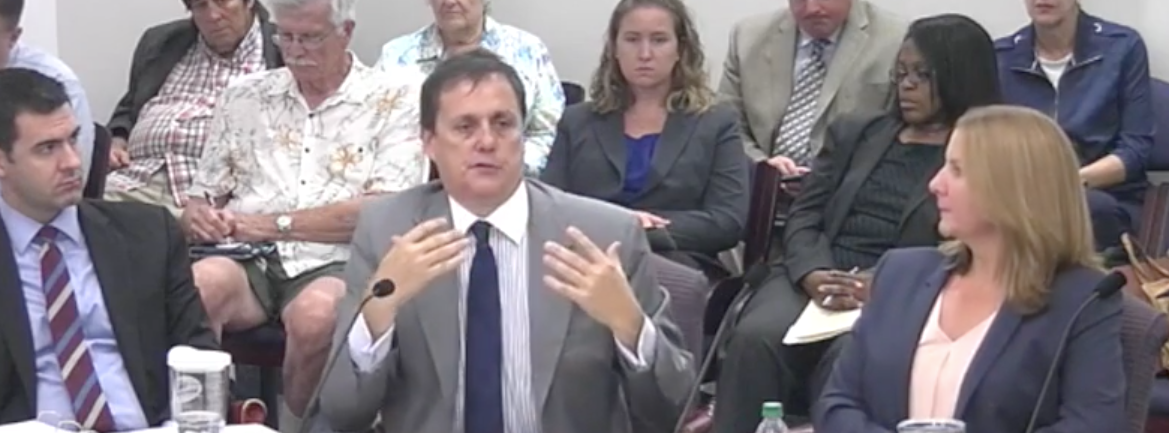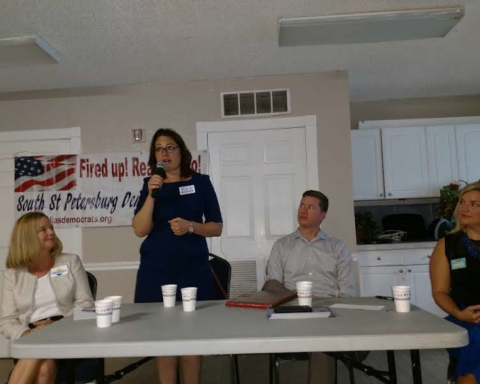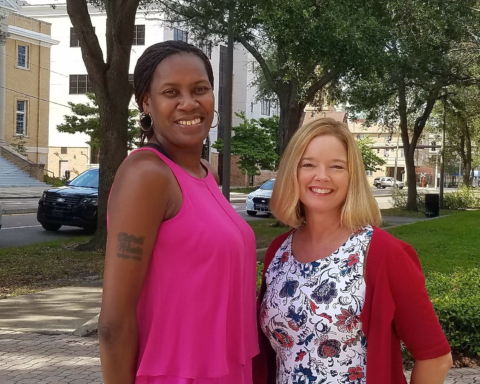After hours of debate, the St. Petersburg City Council approved a campaign-finance reform measure Thursday, which could have national implications.
The final vote was 6-2, with Council members Ed Montanari and Jim Kennedy dissenting. Once the final vote became clear, the crowd in city chambers erupted with cheers.
The board’s vote would limit contributions from political action committees to $5,000 and ban donations from multinational corporations. Violators would be fined $500. City Attorney Joe Patner has consistently warned the council in previous meetings that if they passed the proposal, they would face immediate court action; he repeated his argument Thursday.
Pafner said his cautionary advice was hardly controversial, but based solely on the law. And he said it could cost the city up to $2 million in legal fees.
Even supporters of the measure have acknowledged that the ordinance would likely have opponents challenge it in court, but they all said the issue was so significant it was worth that risk.
Before the public discussion began, City Council Chair Darden Rice, a strong supporter of the proposal, said the Council received 253 emails in support of the measure, with some of those coming from out of Florida.
“With this vote today, St. Petersburg has the opportunity to protect its elections and to lead the way for the nation in addressing these threats to our democracy,” said Amherst based attorney John Bonifaz, the Co-Founder and President of Free Speech For People.
City Councilman Jim Kennedy, an attorney by trade, spent considerable time questioning Bonifaz, at one point asking him it if wouldn’t be more appropriate if he were to make the case in Washington D.C. or Tallahassee?
Not really, Bonifaz replied.
“Local jurisdictions have the right and the obligation to protect their own democracy, and this is not something that needs to be punted to a state capitol or to Congress,” he said.
The U.S. Supreme Court’s 2010 Citizens United decision was often referenced in council discussions leading up to Thursday’s vote, but Bonifaz said there’s also been work over the past year among campaign finance critics trying to overturn the case of SpeechNow.org v. FEC.
That decision permitted a conservative group to raise money beyond the contribution limits placed on traditional PACs because it planned to spend its funds independently of a candidate or party. While some federal appellate circuits have followed that ruling, the U.S. Court of Appeals for the Eleventh Circuit, which has jurisdiction over federal cases Florida, has yet to rule on this question, nor has the U.S. Supreme Court or the Florida Supreme Court.
Kennedy asked Bonifaz why shouldn’t everyone just sit back and see what the courts decide on SpeechNow.org v. FEC, vs. exposing the city to litigation?
“The threat to the city is now,” Bonifaz said with urgency, adding that the problem with money in politics would only get worse.
Before taking a break for lunch after nearly three hours of testimony, Rice made a pitch for councilwoman Amy Foster to support the proposal. Foster had voted for the measure the last time it came before the board, but has expressed ambivalence.
In her comments before the final vote, Foster said she understood the legal risk the city was taking, but ultimately the threat to democracy was greater.
Kennedy couldn’t “get there,” though he effusively praised Bonifaz’ advocacy, and said if he were a member of the public and not charged with the fiscal responsibilities as a member of the council he would support the proposal. Kennedy also said he has a problem with enforcement, saying that the $500 fine lacked teeth and that it exposed the city to too much risk.
Councilman Charlie Gerdes said the enforcement of the measure would come from the voting public paying attention to a campaign, and not the $500 fine. He supported the measure, saying the $2 million being spent on this year’s mayoral race (with both candidates sporting political committees) was “obscene.”
Activists pushing the council to support the measure met in front of City Hall at 8 a.m. Many of them came before the council arguing for the ordinance’s passage.
“The City of St. Petersburg is leading the way in the fight to reclaim our democracy,” said Bonifaz in a statement after the vote. “This ordinance will be a model for communities throughout the nation on how to fight big money in politics and defend the promise of American self-government.”
After the vote, Mayor Rick Kriseman, a supporter of the ordinance, tweeted out a quote by JFK:
"There are risks and costs to…action. But they are far less than the long-range risks and costs of comfortable inaction." – JFK
— Rick Kriseman (@Kriseman) October 5, 2017
In 2014, the Council passed a resolution declaring that, contrary to the U.S. Supreme Court’s decision in Citizen’s United, money is not speech, and corporations are not people. That was a resolution. The Council’s ordinance will now become law in St. Petersburg, barring legal action.







